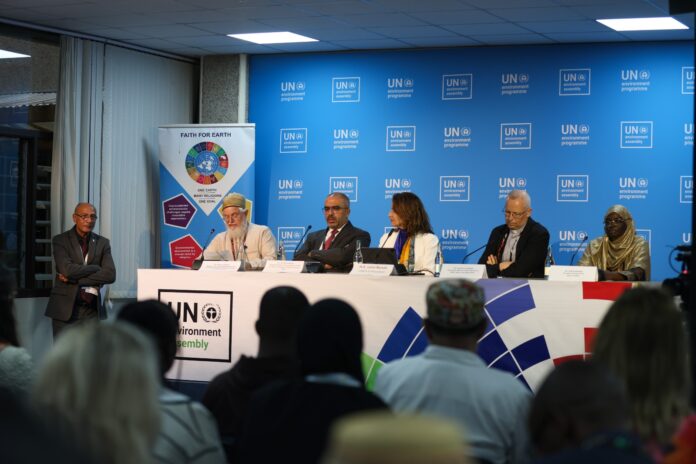Islamic scholars from various regions have presented an Islamic perspective on environmental stewardship at the ongoing UNEA-6 conference in Nairobi, Kenya. The scholars have introduced a significant document called Al-Mizan: A Covenant for the Earth, emphasizing the environmental responsibility embedded within the Islamic faith.
The Covenant, crafted by scholars drawing upon profound theological and ethical principles, highlights the sacredness of creation in Islam. It calls for collective efforts to address climate change, biodiversity loss, pollution, and to safeguard the planet. The document serves as a reminder of the environmental protection values enshrined in the Qur’an and teachings of Prophet Muhammad.
The initiative is led by the Islamic Foundation for Ecology and Environmental Sciences, in collaboration with partners such as UNEP’s Faith for Earth Coalition, ICESCO, Uskudar University, and others. Al-Mizan will be supported by a comprehensive strategy outlining key priorities including the establishment of an Academy, a decade of action, a youth council and summit, among other initiatives.
Director of UNEP’s Faith for Earth Coalition, Iyad Abumoghli, emphasized that Al-Mizan is not just a document, but a catalyst for meaningful change. He noted that the message of Al-Mizan extends to people of all faiths and backgrounds, underlining the need for collective action to address environmental challenges.
Al-Mizan is described as a guiding light by Founder Director Fazlun Khalid, inspired by faith and driven by responsibility. Lead author Othman Llewellyn highlighted the concept of fitrah as a driving force behind the initiative, emphasizing the pursuit of excellence in ecology and the establishment of conservation zones.
Overall, Al-Mizan represents a call to active environmental stewardship rooted in Islamic principles and values. It stands as a powerful reminder of the sacred trust humanity holds in protecting the environment for future generations.

